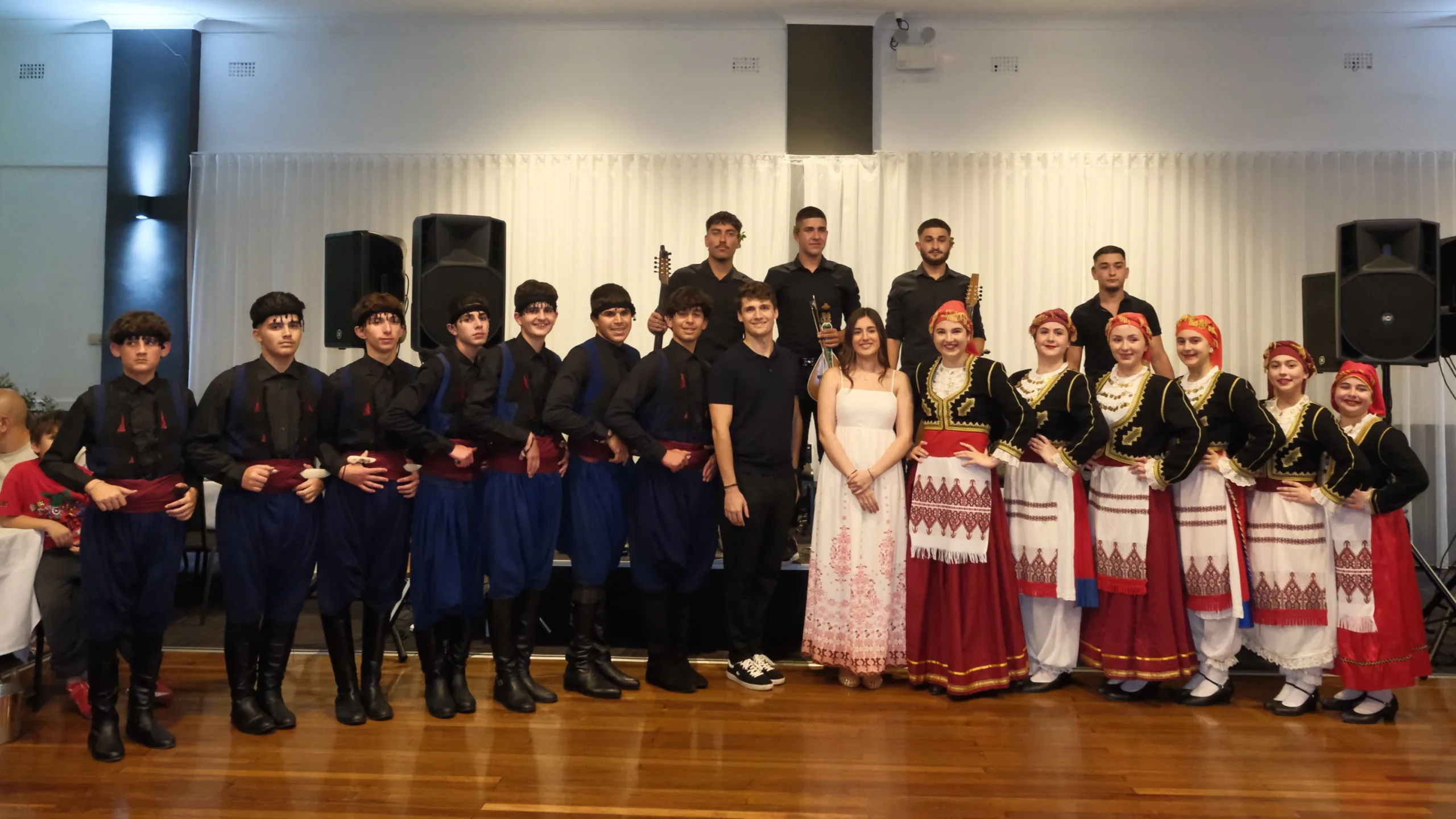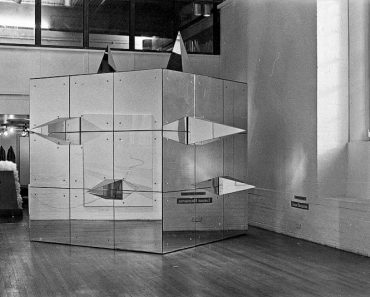ATHENS – ‘Bravo Colonello’, the musical revue presented on the Alternative Stage of the Greek National Opera (GNO) the evenings of October 25 and 26, celebrated with songs and skits the triumph of Greek arms and of the whole Hellenic nation over Benito Mussolini’s invading forces in 1940-41. Italy’s hapless dictator, AKA ‘Il Duce’, and the ‘fratelli’, the fascist brothers (his soldiers), were continuously invoked satirically by singers and actors and with images projected on the scrim – the former often battered by a ‘tsarouchi’, the boots of the famous Greek Evzones, the Presidential Guard.
Most of the music of the co-production of ERT and the GNO staged at the Stavros Niarchos Foundation Cultural Center was the creation of the renowned and beloved Theophrastos Sakellaridis (1883-1950) the composer and conductor, the virtual father of Greek operetta. Alekos Sakellarios and Dimitris Evangelidis wrote the libretto.

On the stage of the sold out theater, exuding wit and energy apropos of the response of the Greeks to Mussolini’s ultimatum of October 28, 1940 – the Hellene’s response forever known as the great ‘OXI’, the thunderous ‘NO!’ – were seven fine performers: Eleni Calenos – well-known in the Greek-American community, Thanasis Alevras, Galini Chatzipaschali, Lydia Fotopoulou, Giorgos Glastras, Raff Kritoulis, and Ariadni Mersinia.
The bouncy overture and opening song – which also closed the show – ‘Bravo Colonello’ – was written by Sakellaridis and delightfully performed by the full company except for Calenos. She immediately followed with ‘What Happened to Mussolini – What a Surprise for the Duce!’ performed in an elegant silvery dress, the song spiced with delicious comic gestures and glances.
The skits, duets, and group songs were interspersed with solos by Calenos. Indeed, all the performers melded musicianship and acting ability. Near the end of the show, Calenos, now in uniform after donning a smart black gown for a few songs – delighted with ‘Vazi O Duce ti Stoli Tou’ – ‘The Duce Puts on His Uniform’, beautifully blending the comic and dramatic.
The program notes that “Bravo Colonello, one of the first wartime ‘epitheoriseis’ (revues, a popular Greek form of satirical variety theater) to be staged in Athens after the declaration of the Greco-Italian War, captures in an almost celebratory fashion the contradictions of the time: a people bewildered yet brave, seemingly long prepared, resisting the advance of fascism and attempting to banish the fear or war with humour and satire” – not least of all, with music, original and borrowed.
The theatrical portion of the revue shows how the residents of Athens – indeed, all Hellenes – adapted to new circumstances both frightening and exciting. The program notes that social life acquires new forms, the blackouts and constant talk of war and the proximity of death created “fresh opportunities for flirtation” and romance.

Today’s audiences were introduced to the stock elements of the Greek revues, characters like the ‘bekris’ – the drunkard, with his savage commentary on war, and the ‘parlates’ – spoken sketches – short humorous monologues and dialogues, as well as sung sketches and individual songs.
Taken together the components – delightfully blended in this presentation, presumably mirroring productions back then – performed a vital social function: “men and women on the home front disguise their anxiety and awkwardness with high spirits, irony and self-mockery, though moments of emotion and national pride are never absent. The fascist enemy is ridiculed while the struggle and daily life of Greek soldiers are… presented in an idealized light” – after all, the timeframe is the heroic defeat of the Italian invasion and the triumphant march deep into Albania. The suffering – starvation and massacres – of the inevitable Nazi follow up to Mussolini’s humiliating defeat lay in the future for the characters on the stage – but not for the audience, and their parents and grandparents.
There was some foreshadowing however: “Ti skotadi, ti skotadi, les kai vriskomai ston Adi” – “such darkness, God what darkness – this could be hell!” was intoned by one character.
The program notes conclude: “In the end, Bravo Colonello is a vivid reminder of the power of musical theater to transform satire into a weapon and the stage into a refuge.”
Michalis Papapetrou, the conductor and arranger, along with the ERT Contemporary Orchestra shared in the loud applause received by the singers. Alexandros Efklidis was the stage director, Alexia Theodorakis the set and costume designer, Fotis Diamantopoulos the movement director, and Christos Tziogkas the lighting designer. Additional music was composed by Nino Casirolli, Apostolos Moschoutis and others – the song ‘To Evzonaki’ (‘The Little Evzone’) was composed by John Phillip Sousa.
And there is Eldo di Lazzaro, who composed the Italian popular song that was the basis of the famous parody ‘Koroido Mussolini’ – ‘Mussolini, You Fool!’, performed by the whole cast and was the highlight of the show.







